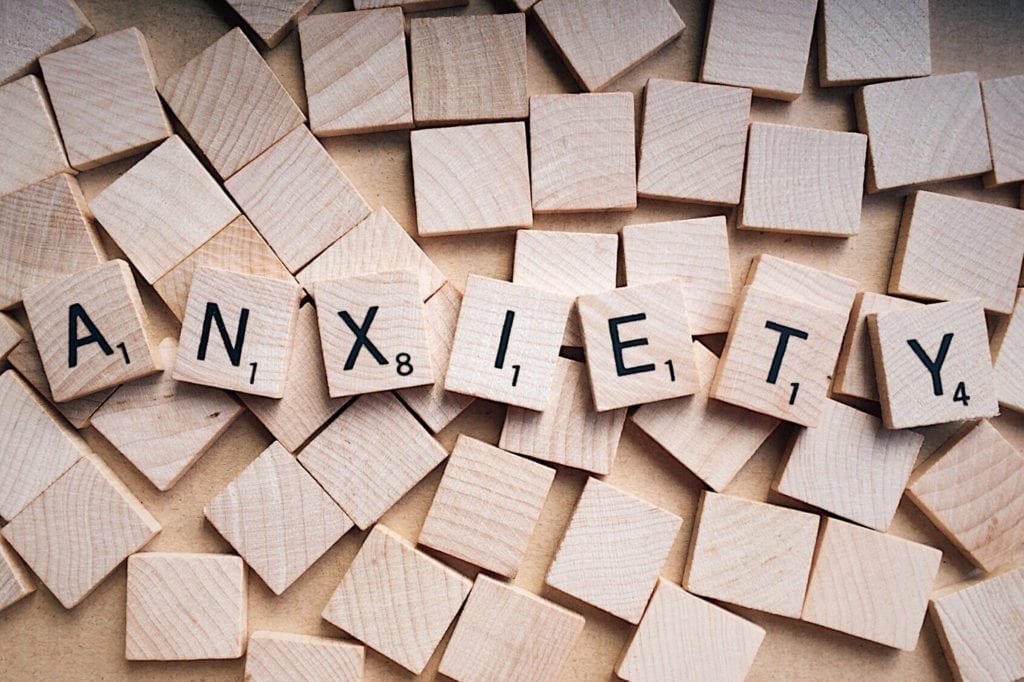Managing Anxiety – Natural, Quick & Easy Tools
Know that feeling of your heart beating faster in response to a stressful situation? Or your palms getting sweaty when you are confronted with an overwhelming task or event? That’s anxiety – our body’s natural response to stress.
A little bit of anxiety can actually be helpful. It can spring us into action when there is something that needs to be addressed. Test anxiety propels us to study, performance anxiety helps us to prepare; however, when anxiety is intense, it can actually lead to feelings of overwhelm, difficulties thinking and functioning, and avoidance of the causes of our stress.
Whether you are experiencing minor anxiety, or are feeling overwhelmed with anxious thoughts and feelings, there are some quick and easy remedies. These can help settle your system, reduce feelings of anxiety, and help to better manage your stress overall.
Practice Focused, Deep Breathing
One of the best ways of quickly reducing anxiety is through our breath. Breathing has been shown to deactivate the stress response by reducing cortisol levels and improving attention and emotion. Abdominal breathing is one method, done by breathing air slowly and steadily deep into the abdomen, imagining a balloon inflating with the inhale and deflating with the exhale. Another technique is inhaling, holding, and exhaling to the counts of the 4-7-8. These are just two of many breathing techniques that can help to prevent anxiety or reduce it in the moment.
5-4-3-2-1
This simple and easy grounding technique has been shown to reduce feelings of overwhelm and bring the mind out of anxious thoughts and into the present. Activate your senses by bringing awareness to your environment and your body: identify 5 things you see, 4 sounds you hear, 3 things you feel with your body (e.g., the floor under your feet, chair on your back), 2 smells, and one taste. Do this exercise all the way through, and repeat if necessary, to feel more settled and grounded.
Examine your mind

Look closely at the thoughts that are running through your mind and those that might be fueling your anxiety. Are you imagining worst-case scenarios? Are you trying to problem solve something that is not actually in your control? Negative or distorted thoughts can be the root of anxiety. If you find yourself catastrophizing, making assumptions, or going over and over a situation in your mind, you might want to pause and take a look at the reality. Focus on the facts of the situation; what is the likelihood that your fears and worries are true? Chances are things are not as bad as your anxiety is making it seem.
Avoid Avoiding
Anxiety activates our fight-flight-freeze response causing us to interpret and respond to stressful situations as though they are life-threatening events. This response is helpful when we are, in fact, faced with a situation that we need to protect ourselves from. However, most anxiety-inducing stressors are actually not life-threatening and, rather than avoiding fear, actually require a calm and proactive response.
We make anxiety worse in the long-run when we avoid stressful situations by, for example, putting off studying for an exam, preparing for a presentation, or avoiding a difficult conversation. To deactivate the fight-flight-freeze response, we need to approach those stressors that are not actually causing us danger. It is in approaching what is feared, that the mind learns the stress is not as scary as it seems.
Managing Anxiety, Naturally
Bouts of anxiety are to be expected in our busy and stressful lives. If these quick tips are not helping and you find your anxiety to be overwhelming or difficult to manage, you might want to consider seeing a mental health professional. A professional can provide guidance around how to use these tools and others that might be unique to your experience and struggles.
Anxiety may always be a part of your life, but should not overtake your day-to-day. Even the most severe forms of anxiety can be treated with professional support. Finding a treatment that works can help to reduce anxiety and make stress more manageable.
Written by Tara Irwin, Registered Clinical Counsellor
Reference: [1] Ma, X., Yue, Z. Q., Gong, Z. Q., Zhang, H., Duan, N. Y., Shi, Y. T., Wei, G. X., and Li, Y. F. (2017). The effect of diaphragmatic breathing on attention, negative affect and stress in healthy adults. Frontiers in Psychology, 8, 874.

